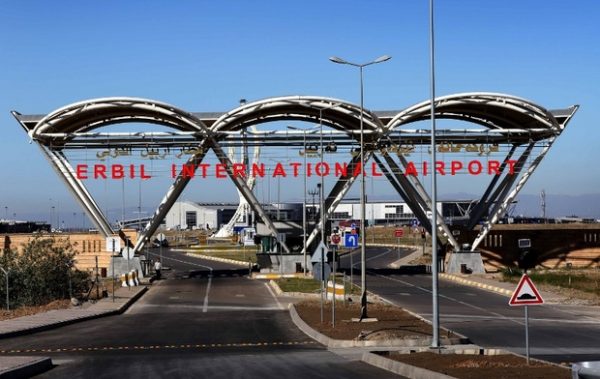
A ban on international flights into Iraq’s Kurdish region was being imposed on Friday after the Baghdad government retaliated against a vote for independence that has drawn opposition from foreign powers.
Iraq’s Kurds overwhelmingly backed independence in a referendum on Monday, defying neighboring countries which fear the vote could lead to renewed conflict in the region.
Almost all foreign airlines suspended flights to Erbil and Sulaimaniya, obeying a notice from the government in Baghdad, which controls Iraqi air space. The ban was set to come into force at 6.00 p.m. (1500 GMT) on Friday.
Domestic flights are still allowed, so travelers are expected to travel to Kurdistan mostly via Baghdad’s airport, which will come under strain from the extra traffic.
Iraq’s top Shi‘ite cleric intervened to oppose the secession of the Kurdistan region, adding to pressure on the Kurds in his first directly political sermon since early last year.
Grand Ayatollah Ali al-Sistani asked the Kurdistan Regional Government (KRG) “to return to the constitutional path” in pursuing self-determination for the Kurdish people, a representative said in a sermon on his behalf.
Turkey, which has already threatened economic sanctions and a military response to any security challenges posed by the referendum result in neighboring northern Iraq, has maintained a drumbeat of opposition to the Kurdish vote.
After talks in Ankara with Russian President Vladimir Putin on Thursday, Turkish President Tayyip Erdogan said the referendum was illegitimate and Russia and Turkey agreed that the territorial integrity of Iraq must be preserved.
Turkey and Russia have strong commercial ties with the semi-autonomous Kurdish region in Iraq. But the vote has alarmed Ankara as it battles a separatist insurgency from its own large Kurdish minority.
OIL LIFELINE
While Turkey has threatened to cut off the Kurds’ oil export lifeline – a pipeline that runs through Turkish territory – Ankara has so far mostly held back from specific action against Iraqi Kurdistan.
Prime Minister Binali Yildirim said Turkey would only target those who decided to hold the referendum since Ankara would not make civilians living in northern Iraq pay the price for the vote.
Kurdish officials say they can withstand an economic blockade because they are self-sufficient in power generation and fuel supply and have fertile agricultural land.
They also say that three quarters of the trucks that cross the Turkish border are heading to territory controlled by Baghdad rather than to the Kurdish region, so the Turkish and Iraqi economies would suffer from any blockade.
The United Nations offered on Thursday to help resolve the problem between the KRG and Baghdad, the Iraqi foreign ministry said following a meeting between Foreign Minister Ibrahim al-Jafari and Jan Kubis, the senior U.N. envoy in Iraq.
The United States was willing, if asked, to help facilitate talks to try to ease tensions between the two sides, U.S. State Department spokeswoman Heather Nauert said.
Their autonomous region in Iraq is the closest the Kurds have come in modern times to a state. It has flourished amid Iraq’s civil war but may struggle to maintain investment if it is blockaded economically.
The United States, major European countries and nearby Turkey and Iran opposed the referendum as destabilizing at a time when all sides are still fighting Islamic State.
LOSS OF FOCUS
A spokesman for the U.S.-led coalition said there had been a loss of focus in the fight against Islamic State since the referendum.
Baghdad has heaped pressure on the Kurds, demanding they cancel their referendum, while parliament urged the Iraqi government to send troops to take control of oilfields held by Kurdish forces.
Baghdad also told foreign governments to close their diplomatic missions in the Kurdish capital Erbil.
The Kurds consider Monday’s referendum to be an historic step in the generations-old quest for a state of their own, while Iraq considers the vote unconstitutional.
Iraqi Kurdish leader Masoud Barzani has said the vote is not binding, but meant to provide a mandate for negotiations with Baghdad and neighboring countries over the peaceful secession of the region from Iraq. Baghdad has rejected talks.
The Kurds were left without a state of their own when the Ottoman Empire collapsed a century ago. Around 30 million live in Iraq, Turkey, Syria and Iran.
The Kurds say the referendum acknowledges their contribution in confronting Islamic State after it overwhelmed the Iraqi army.
REUTERS

Leave a Reply
You must be logged in to post a comment.